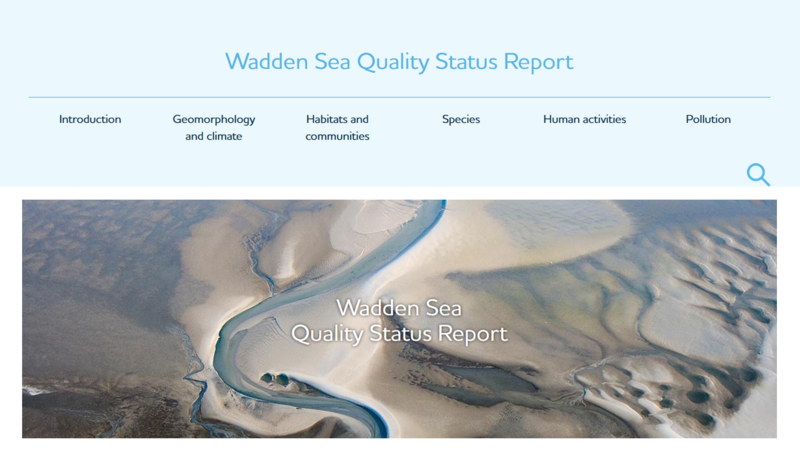Quality Status Report 2017 gives multi-faceted analysis of the Wadden Sea

Geomorphology and climate, habitats and communities, species, human activities, and pollution of the Wadden Sea are the main areas of analysis in the Quality Status Report 2017 (QSR). Published periodically by the Common Wadden Sea Secretariat (CWSS), the joint work of over 100 experts from Denmark, Germany and the Netherlands describes and evaluates the ecological status of the Wadden Sea. Like its predecessors, the 2017 QSR testifies to the success of the Trilateral Wadden Sea Cooperation with regard to certain aspects of the conservation of the Wadden Sea World Heritage, while also indicating that much still remains to be done. All findings are publicly accessible at qsr.waddensea-worldheritage.org.
Two years in the making, the Wadden Sea Quality Status Report is composed of 29 thematic reports on the Wadden Sea World Heritage, Wadden Sea islands and offshore areas. “The report helps us identify possible problems and lack of knowledge,” says Sascha Klöpper, QSR Coordinator and Deputy Executive Secretary of CWSS. “It also provides an important and scientifically sound evidence base for decision making and policy development at all levels. In particular, it shows that the Wadden Sea is a single ecological entity, which underlines the importance of the Trilateral Wadden Sea Cooperation between our countries.”
The QSR describes and evaluates the current ecological status of the Wadden Sea. It identifies changes in this status and their possible causes, classifies issues of concern and indicates possible measures of redress, including the evaluation of the likely effectiveness of these measures, and it detects gaps in knowledge. The report is an output of the Trilateral Monitoring and Assessment Programme (TMAP), the common monitoring programme for the Wadden Sea carried out since 1997 by Denmark, Germany and the Netherlands within the Trilateral Wadden Sea Cooperation. The programme aims to facilitate adequate, cost-effective monitoring and integrated science-based assessments of the Wadden Sea ecosystem, while considering the Member States’ monitoring and reporting requirements under the relevant EC Directives and international conventions.
The 2017 report is the first QSR to be published in an online portal. “The format of this report is entirely new,” says Rüdiger Strempel, Executive Secretary of CWSS. “Following a successful trial run we now proudly present it to the general public and are confident that the new online format will make the findings accessible to an even broader readership. Nevertheless, hard copy lovers have not been forgotten and can generate PDFs of the reports directly from the page.”
